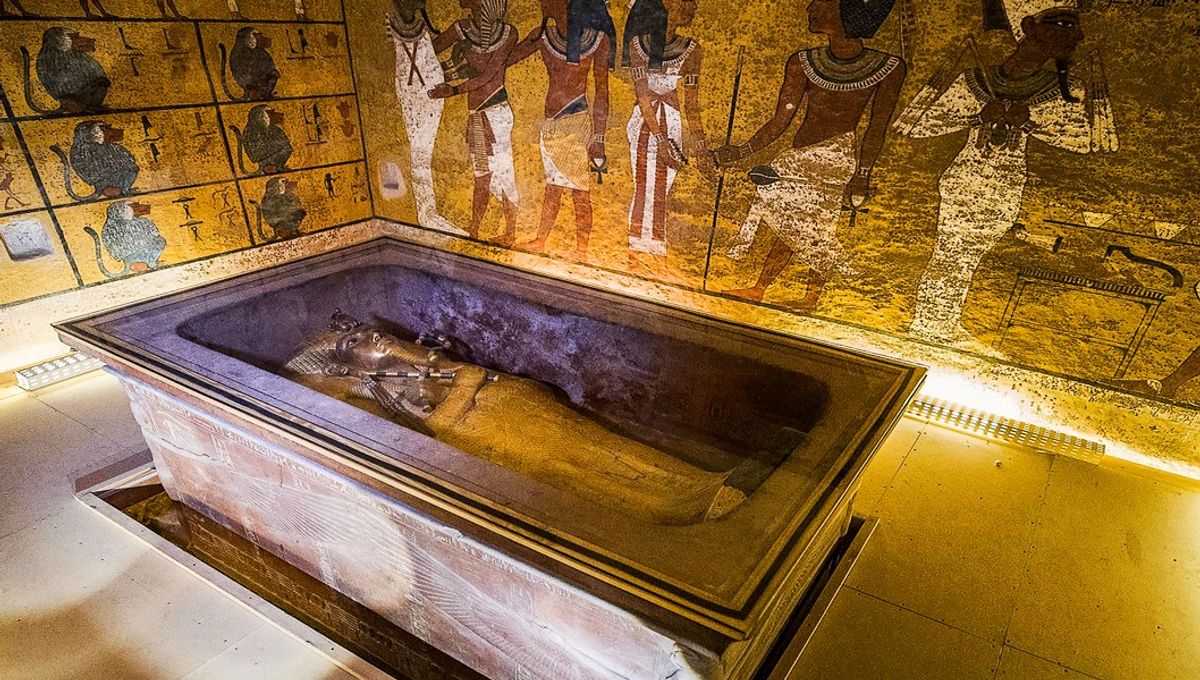
In addition to being one of the most significant archaeological finds of the 20th century, the tomb of Tutankhamun also turned out to be a glorified can of worms, the opening of which has inspired countless myths, movies, and pseudo-archaeological theories. In particular, the so-called “Pharaoh’s Curse” became a globally recognized phenomenon when Lord Carnarvon – who sponsored the expedition to find King Tut – died just a few months after entering the tomb.
Despite this suspicious coincidence, there’s little evidence to suggest any correlation between pharaoh-finding and hastily dying. Expedition leader Howard Carter, for instance, lived for another 17 years after removing the Boy King from his eternal resting place.
As for Carnarvon, he’d been at death’s door for many years prior to his eventual demise, suffering from repeated lung infections after being severely injured in a car accident in 1903. Far from being cursed, one might say he lived a charmed life until eventually succumbing to blood poisoning from a mosquito-borne infection in May 1923.
However, Carnarvon may well have brought the curse upon himself through his business dealings. In order to finance the famous expedition, he sold exclusive rights to all information about the tomb to the Times of London, effectively giving the newspaper a monopoly on all facts relating to Tutankhamun and his discovery.
With the entire world captivated by the story breaking in the Times, other outlets were desperate to get their hands on something to publish, and resorted to making things up. Following Carnarvon’s death, journalists around the world had an absolute field day, printing all manner of speculative stories about how his departure came about.
According to David Silverman, Curator of Penn Museum’s world-famous Tutankhamun exhibition, writing in 1987, many reporters at the time deliberately misinterpreted inscriptions found on the tomb in order to imply the existence of a curse. One outlet, for instance, claimed that a passage read “I will kill all of those who cross this threshold into the sacred precincts of the royal king who lives forever,” when in fact no such message was ever found.
Another butchered a section of the Egyptian Book of the Dead that was engraved on the tomb, erroneously translating it as: “They who enter this sacred tomb shall swift be visited by wings of death.”
However, while there is no curse to be found anywhere near the body of King Tut, hoodoos were sometimes inscribed on other ancient Egyptian tombs. One famous example warns that “they that break this tomb shall meet death by a disease that no doctor can diagnose,” although it’s unclear whose grave this threat was written upon.
Generally, however, curses were only etched onto the tombs of private individuals, since Egyptian royals were already protected by a series of spells known as the Pyramid Texts and therefore had no need for extra defenses in the form of hexes.
And yet, despite the complete lack of genuine Pharaonic curses, overzealous observers have repeatedly looked for reasons to believe that disturbing an ancient king might have deadly consequences. One paper – published in a journal that was described by one philosopher of science as “an attempt to institutionalize pseudoscience” – even suggests that the Egyptians buried nuclear waste in “vaults” beneath some tombs, leading to fatal health complications among archaeologists.
Ridiculous speculation aside, some legitimate studies have revealed that ancient tombs may contain potentially harmful fungi, molds, or other microbes that could endanger researchers who inhale them. However, so far there’s no indication that any Egyptologist has ever been struck down by such a pathogen, all of which amounts to yet another nail in the coffin of the Pharaoh’s Curse.
Source Link: The Pharaoh’s Curse: Does Opening A Tomb Really Lead To An Untimely Death?